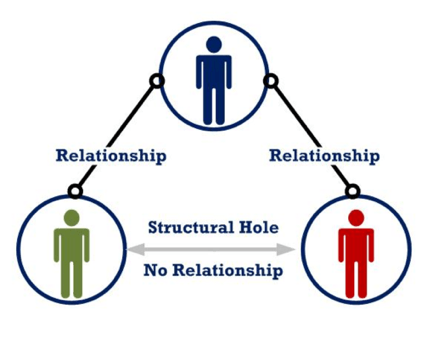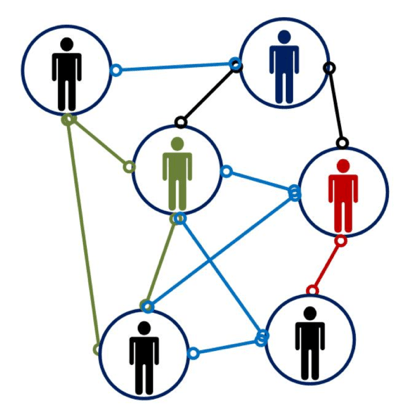An interesting conversation about the future of money has been taking place for quite some time now. A global community of bright innovators set about to discover alternative ways to conduct commerce with a focus on moving economics beyond the transactional level to the social level. Nearly a decade ago, at the 2010 Sibos conference (an annual banking and financial conference), futurist visionary Venessa Miemis stated:
“There is a class of young, intelligent, creative, passionate people who have become disillusioned with the debt-based monetary system, and are busy creating new infrastructures, right now, that are allowing a commons-based peer-to-peer infrastructure to emerge, in parallel to what currently exists. And the foundation of this economy is based on trust, and on transparency, and on the ability of distributed networks to self-organize.”
For a community concerned with the future of money to realize a financial system based on trust, it is necessary to address the culture of the community. In his book Trust: The Social Virtues and the Creation of Prosperity, social scientist Francis Fukuyama places trust at the center of prosperous cultures. Trust is the expectation that arises within a community of regular, honest, and cooperative behavior based on commonly shared norms.
Fukuyama describes culture as an “inherited ethical habit.” As an inherited ethical habit, trust produces a culture that is predictable, open, and honest and where mutual advantage and the sharing of ideas is important. The reciprocity aspect of trust creates value within the culture because it elevates the possibilities that arrive from the relationships within the community.
Trust, therefore, has a strategic, developmental, and entrepreneurial value upon which organizations and communities can create an impactful future.
The Source of Trust and the Practice of Honor
Trust is an outcome of shared attitudes and behaviors of mutual respect and dignity. If a person lacks dignity and self-respect, it will be difficult for them to treat others with dignity and respect and for trust to develop between them. When I trust you, it is because I respect, value, and appreciate you.
Trust is also a recognition of our interdependence upon one another. Our mutual respect means that we recognize one another’s strengths and potential that are worth affirming and elevating. As a result, at the heart of the experience of trust is the practice of honor.
We are all familiar with the practice of honoring people for their accomplishments, contributions, and achievements. What if instead we recognize and affirm them for their potential accomplishments?
This means we must discover what it is about a person that is worth honoring. To do this, we must ask questions about them. And once we find out some noteworthy details, we honor them by affirming and envisioning how they can make a difference that matters.
When I shifted my perspective to honoring the potential of people, I discovered that it’s much easier to trust them and for them to trust me. A bond forms between us. This is so because as soon as I recognize their potential, I become a partner with them in realizing that potential. Imagine a group or society where this is the practice of the community. To practice honor and trust this way sets up conditions in organizations and communities where people can discover their true contribution to society and form the necessary relationships to realize that calling.
From Competition to Collaborative Competitors
If we treat others with disrespect and dishonor, we act without dignity. The effect is destructive and toxic. It divides, isolates, and creates inequities, poverty, and war.
I’m not an optimistic Pollyanna who believes that we could all just get along; I’m a realist in understanding the competitive ground upon which we walk each day. There is more to trust than just respect and honor.
Consider this diagram:
A person who is able to establish relationships of trust is the one who will have a greater competitive advantage in a rapidly changing world. In the diagram, Mr. Blue has a competitive advantage over Mr. Green and Mr. Red. His advantage is in brokering a relationship between them. His ability to connect them advances each of their opportunities to make a difference.
Competition is one way of understanding the social relations of people. We see it most destructively in predatory business practices and divisive, dishonorable politicking. If Mr. Green and Mr. Red work against each other, neither is able to gain much ground.
On the other hand, the complement of competition is collaboration.
If at the heart of competition is the competitive advantage that one has over another, then at the heart of collaboration is the recognition that a competitive advantage furthers the endeavor for the greater benefit of the parties. The most enlightened industries are ones in which members become collaborative competitors. Trust is essential in collaborative competition. Let’s look at an expanded version of the earlier diagram:
Originally, Mr. Blue brokered a relationship between Mr. Green and Mr. Red. Now we see a much different network of relationships. Mr. Green is now a principal broker of relationships by bringing two new relationships into the network. As this network grows in complexity, the key to its healthy functioning is the level of trust and other essential qualities that exist among the members.
Healthy competition, strengthened by respect, trust, and honor, elevates the network above a transactional relationship centered on how to secure one’s own benefits from the network. Instead, the network is transformed from a collection of individuals to a collaborative community that shares common values, goals, and benefits.
Creating a Future of Impact
Trust is becoming a strategic, emergent reality that transforms relationships of acquaintance into communities of respect, honor, and mutuality. It is the basis for the kind of economic system envisioned by the “future of money” community. It is the kind of attitude and behavior that we should expect from our leaders and that we should expect from ourselves to strengthen our social structures and communities.




